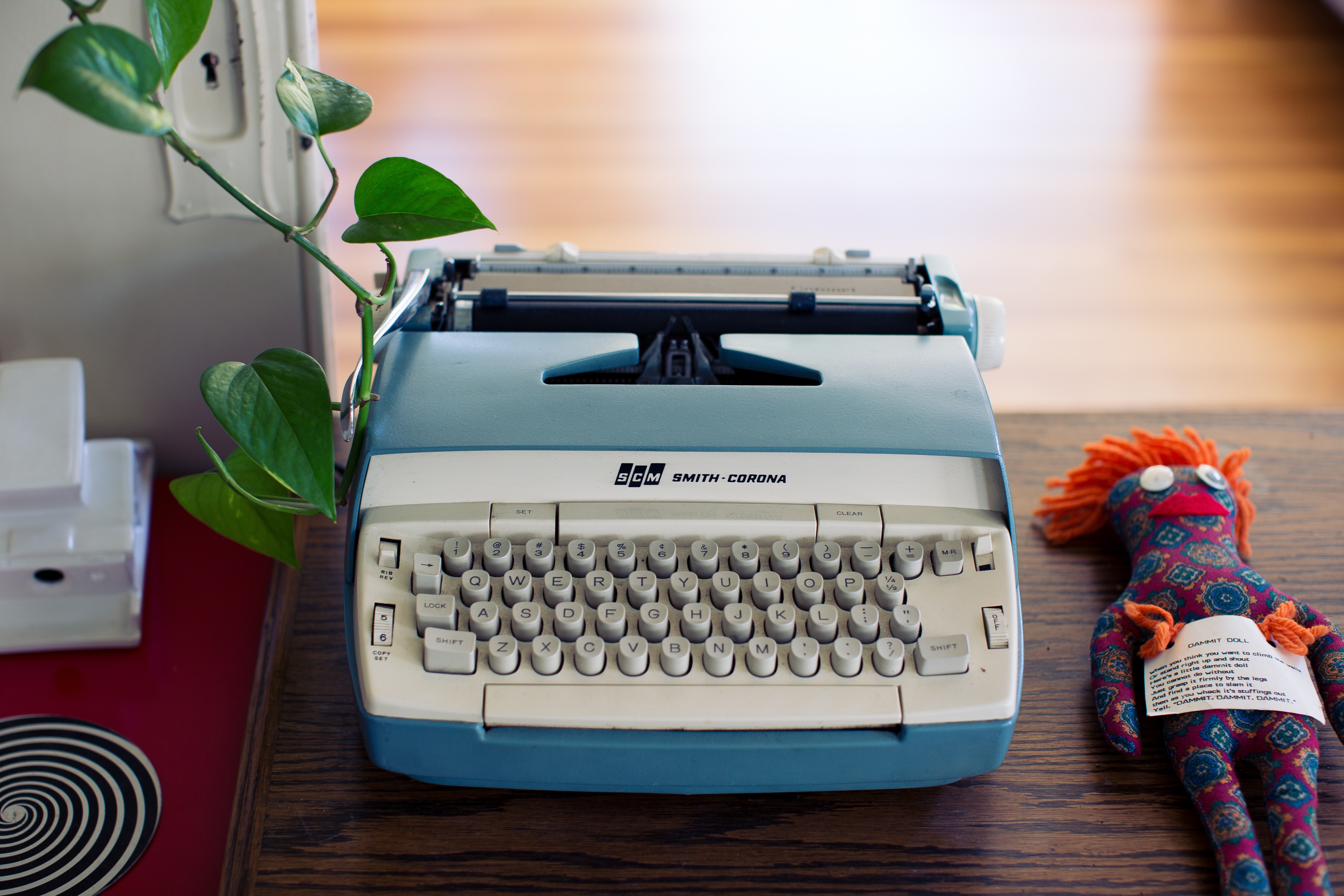
I love to type.
When I was in elementary school, sometimes my mom would take me to work with her over the summer (a perk of working for the family business). She’d sit me in front of her typewriter in her office and assign me “projects:” mostly nonsense meant to kill time, but I adored it.
Her typewriter was an IBM Wheelwrite 50, and it was the coolest contraption any kid in the early nineties could imagine. Keys that depressed with a satisfying ‘clack.’ A sleek, modern design. And the coup d’état—a monitor. This wasn’t your grandpa’s typewriter, no-sir-ee.
I could see what I was typing either on the page or on the monochrome screen. I could activate a delayed print feature, allowing me to type an entire line on the monitor before it whirred out on the paper in one long string of rapid-fire strikes.
I could delete. As anyone who’s ever used a typewriter knows, this is huge. It wasn’t as easy as hitting the backspace on today’s keyboard—you had to hold the delete button and type the letter that you wanted to remove. But for the days before personal computers were ubiquitous? This was cutting-edge tech.
I’d spend hours banging on that typewriter. It’s where I learned to touch-type, using the raised dots on the ‘F’ and ‘J’ keys to orient my fingers without looking. Typing brought me pure joy. My mom’s nonsense projects soon turned into stories, sparking my imagination and life-long passion for the written word.
It’s been over twenty years since I’ve used that or any other typewriter, but I still enjoy typing. Loudly and with flourish. Which is why I rarely handwrite anything—even notes—for my writing projects.
Some writers thrive on handwriting. With their notebooks tucked in a pocket or purse, they find it an easy way to collect story ideas wherever they go. I even met a woman recently who handwrites the entire first draft of her novels before typing the second draft on a computer.
I say, “good for you, not for me.”
Me? I’m a tech girl. If a story idea randomly pops into my head, perhaps when I’m at the grocery or running an errand, I prefer to use my phone to write myself a quick email. Later, when I have time, I add the note to Google Docs, which I’ve meticulously organized into files. If I wrote the idea in a notebook or, God forbid, on a piece of scrap paper, that idea would never see the light of day again. It would fester forever in that notebook or at the bottom of my purse.
The key is to find what works for you. You’ll be more likely to keep track of ideas and start and finish writing projects if the tools you’re using are conducive to success, either because they’re convenient or because you enjoy using them.
Whether it’s Scrivener, a spiral notebook, Google Docs, or even a beloved typewriter, use what feels right to you. At the end of the day, the important thing is that you’re writing.
Tags
Related Posts
Guest Blogging for Lindblad Expeditions
Ahoy, readers! For those who enjoyed the setting of my romantic comedy, Shipped, and would…
06 June 2016Publishers Weekly Calls SHIPPED a “Laugh-Out-Loud Debut”
I know reviews aren’t everything. They’re inherently subjective and meant for…
06 June 2016


Leave A Comment